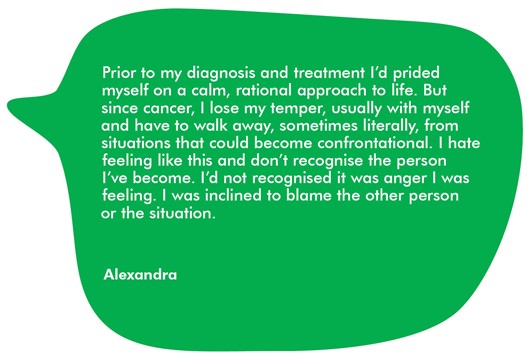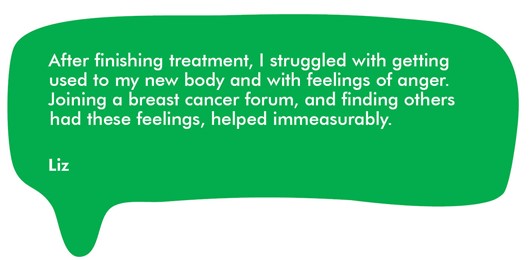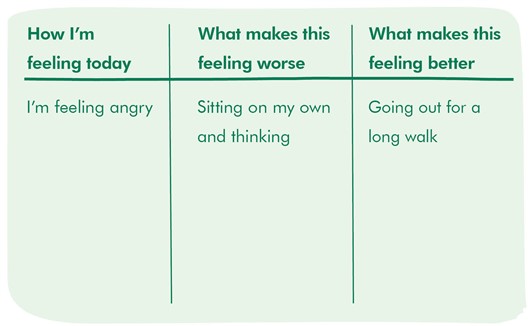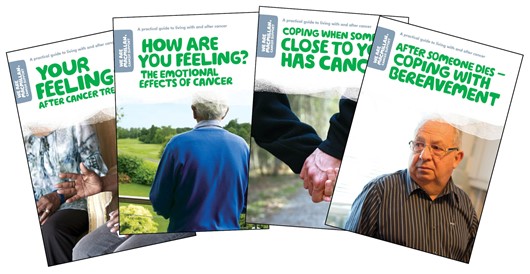This week is Anger Awareness Week, and our editorial assistant Amy-Louise has been speaking to some of our volunteer reviewers about the anger they have experienced as a result of being affected by cancer. In this blog, we also talk about coping with anger and how you could help a loved one with their anger.
Our reviewer Joyce spoke about how she felt angry after her treatment for mouth cancer, having been left unable to eat foods with a normal texture. For Liz, anger took her by surprise. She felt angry at the thought of having to wear a prosthesis after her diagnosis of breast cancer. Kemi found herself frustrated at not being able to do things she used to with ease.
Alexandra didn’t recognise herself when she noticed that she was losing her temper more frequently. After attending a psycho-educational workshop for women with gynaecological cancers, she felt comforted to know that she wasn’t the only person who felt this way.

Feeling angry is a normal reaction if you have been affected by cancer. You might feel angry because:
There are many other reasons that you might feel angry, and it is natural to feel this way. But it is important to be able to express anger rather than trying to ignore it.
How can I manage my anger?


How can I help someone who is angry?
If you have a family member or friend with cancer, there may be times when their frustration or anger with the situation is directed at you. They might be angry about the cancer, but this can be hard to put into words. So they may take out their feelings on those closest to them. This can be difficult, especially when you are also trying to cope with your own feelings.
Try not to take anger personally. Your relative or friend may be upset because of the cancer, not at you. It is best not to respond angrily. Instead, try and find a time when you are both calm to talk about it. Our booklet Talking with someone who has cancer has tips for how to respond to anger.
Where can I find information and support?
We have a range of booklets and audiobooks about the emotional effects of cancer, whether you have cancer or are a friend or relative of someone with cancer. We also have information to support people affected by bereavement.

You can call our cancer support specialists on 0808 808 00 00, or you could visit our Online Community to share your experiences and talk to other people affected by cancer.
To see what else Macmillan's cancer information team has been blogging about, please visit our blog home page! You can subscribe to receive our blogs by email or RSS too.
We're with you every step of the way
The Macmillan team is here to help. Our cancer support specialists can answer your questions, offer support, or simply listen if you need a chat. Call us free on 0808 808 00 00.
Comments? Feel free to add them below (you need to be logged in).
Keep in touch Follow Macmillan’s cancer information team on Twitter @mac_cancerinfo
Whatever cancer throws your way, we’re right there with you.
We’re here to provide physical, financial and emotional support.
© Macmillan Cancer Support 2025 © Macmillan Cancer Support, registered charity in England and Wales (261017), Scotland (SC039907) and the Isle of Man (604). Also operating in Northern Ireland. A company limited by guarantee, registered in England and Wales company number 2400969. Isle of Man company number 4694F. Registered office: 3rd Floor, Bronze Building, The Forge, 105 Sumner Street, London, SE1 9HZ. VAT no: 668265007